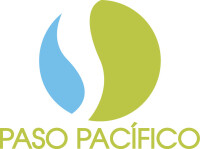About Paso pacifico
Paso Pacifico: Conservation, Science, & Education in Nicaragua
Paso Pacifico is a non-profit organization that focuses on conservation, science, and education in Nicaragua. The organization was founded in 2005 by Dr. Sarah Otterstrom with the aim of protecting the biodiversity of Central America's Pacific slope.
The organization's mission is to restore and protect the natural ecosystems of Central America's Pacific slope through innovative conservation strategies that involve local communities. Paso Pacifico believes that conservation efforts must be community-driven to be successful.
Paso Pacifico has several programs aimed at achieving its mission. These programs include:
1. Reforestation Program: This program aims to restore degraded forests and create new forest corridors to connect fragmented habitats for wildlife.
2. Sea Turtle Conservation Program: This program aims to protect sea turtles from poaching and habitat destruction by working with local communities to promote sustainable fishing practices.
3. Agroforestry Program: This program promotes sustainable agriculture practices that integrate trees into farming systems, which helps reduce deforestation while improving soil health and crop yields.
4. Wildlife Monitoring Program: This program uses camera traps and other monitoring techniques to track wildlife populations in protected areas.
5. Environmental Education Program: This program provides environmental education opportunities for local communities, including school children, farmers, and fishermen.
6. Climate Change Adaptation Program: This program helps communities adapt to the impacts of climate change by promoting sustainable land use practices that increase resilience against extreme weather events such as droughts or floods.
Paso Pacifico works closely with local communities throughout its programs because it recognizes that conservation efforts must be community-driven if they are going to succeed over the long term. The organization also collaborates with government agencies at all levels (local, regional, national) as well as other NGOs working on similar issues in Central America's Pacific slope region.
One of Paso Pacifico's most significant achievements has been its work on sea turtle conservation. The organization has helped establish several protected areas along Nicaragua's Pacific coast, which have become important nesting sites for endangered sea turtle species such as the Olive Ridley and Hawksbill turtles. Paso Pacifico works with local communities to monitor these nesting sites and protect them from poaching.
Another notable achievement of Paso Pacifico is its work on reforestation. The organization has planted over 1 million trees in Nicaragua's Pacific slope region since its inception, creating new forest corridors that connect fragmented habitats for wildlife.
Paso Pacifico's work on agroforestry is also noteworthy because it promotes sustainable agriculture practices that integrate trees into farming systems, which helps reduce deforestation while improving soil health and crop yields.
In conclusion, Paso Pacifico is a non-profit organization that focuses on conservation, science, and education in Nicaragua. The organization's mission is to restore and protect the natural ecosystems of Central America's Pacific slope through innovative conservation strategies that involve local communities. With programs focused on reforestation, sea turtle conservation, agroforestry, wildlife monitoring, environmental education, and climate change adaptation; Paso Pacifico has made significant strides towards achieving its mission over the past decade.
